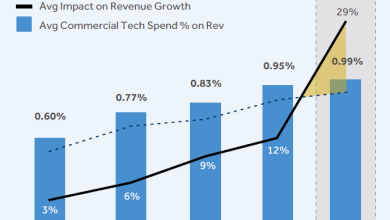
Staying ahead of the competition is crucial for maximising the ROI of any business investment. To the surprise of many, Artificial Intelligence is not just a concept of the future but already a reality, breaking down boundaries in the world of marketing. For marketing executives, there is a surge in ROI after using AI tools; meaning artificial intelligence can directly improve performance marketing strategies.
But what is AI-driven performance marketing and how could this be of benefit to your business when your top competitor is doing everything right in today’s digital race?
Key Strategies to Maximise ROI with AI
The three key strategies that businesses need to focus on to unlock the true capabilities of AI in performance marketing are:
1. Data-Driven Decision-Making
Notably, in the age of big data, it is essential to make informed decisions. Becoming proficient in analysing vast amounts of information will allow you to provide actionable insights into strategies for marketers. 53% of marketers have already put their best foot forward using AI for data analysis.
Successful campaigns in the digital age are no longer just concepts; they are founded on data-driven marketing.
2. Personalisation at Scale
Gone are the days of spray-and-pray marketing. AI now makes it possible to have very personalised marketing efforts that speak directly to a customer’s preferences and behaviours. TIDAL Digital, in this space, leverages AI to create highly tailored marketing strategies that inspire engagement and drive conversions. The results speak for themselves:
- marketers believe AI-driven personalisation improves engagement and conversion rates.
- marketers working with AI say it helped personalise the customer journey across channels.
Therefore, AI makes highly personalised marketing campaigns possible, providing better relevance to consumers for improved conversion rates and, ultimately, better ROI. A performing marketing agency using AI-driven techniques will optimise ad spend, forecast market trends, and adjust the strategy in real-time to maximise performance.
3. Continuous Optimisation
AI never sleeps, and neither should your marketing efforts. In-campaign optimisations in real time, driven by AI-driven analytics, promise to make a world of difference and will result in better effectiveness and efficiency. They leverage AI and marketing automation, resulting in marketers utilising these technologies for paid advertising and email personalisation.
Advanced AI Technologies in Performance Marketing
Next-generation AI technologies are likely to reshape the landscape of performance marketing. Somehow, innovation is not only generating better strategies but it is also opening up completely new opportunities for marketers by reaching target audiences and driving ROI. Let’s get a little deeper into these advanced AI technologies:
Predictive Analytics
Predictive analytics leads to AI-driven marketing strategies. The machine learning algorithms can be run against historical data to predict future trends, customer behaviours, and market shifts.
- Predicting Customer Lifetime Value: AI models are capable of projecting the long-term value of customers, enabling marketers to optimise resources accordingly.
- Prediction of Churn: With the identification of customers who are more likely to churn, businesses can proactively execute retention strategies.
- Demand Forecasting: AI can predict demand for products before inventory is even created or effective marketing efforts are targeted.
Businesses that apply AI in marketing correctly can expect to see an increase in revenue, primarily because of the advantage of predictive analytics.
AI-Powered Advertising
AI is changing the nature of how ads are produced, positioned, and optimised across channels:
- Programmatic Advertising: AI algorithms process real-time bidding and ad positioning, ensuring that ads reach the right audience at the right times.
- Dynamic Creative Optimisation(DCO): AI can customise ad creatives in real-time based on user data, generating dramatic margins of engagement rate performance improvement.
- Audience Segmentation: More sophisticated AI models create very granular audience segments, which lead to more effective ad targeting.
Statistics indicate that 90% of marketers in 35 countries who have implemented AI-powered tools to automate customer interactions trust AI for ad targeting, specifically relying on it for this purpose.
Integrate AI Across Channels
For a frictionless customer experience, AI needs to be topically workable across all marketing channels:
- Cross-Channel Attribution: AI models provide granular and accurate insights into channel contribution to conversions.
- Content Distribution: AI assures the best channels and times for distributing the content to create an impact.
- Customer Journey Optimisation: AI models examine touch points across channels to succeed in constructing effective customer journeys.
Marketers leverage AI with marketing automation to drive cross-channel personalisation, pointing to increasing holistic AI integration.
Natural Language Processing (NLP):
Natural Language Processing AI understands customer intent. NLP is changing how businesses communicate with and understand their customers:
- Sentiment Analysis: AI can easily pick up the customer’s pulse through social media, reviews, and customer care conversations.
- Chatbots and Virtual Assistants: More advanced NLP makes auto-customer interactions more human-like and useful.
- Voice Search Optimisation: As voice searches become the norm, NLP will allow content optimisation based on voice queries.
AI Marketing: Challenges and Considerations
Although AI has huge benefits, it isn’t always easy. There are many challenging factors to consider, such as:
- Data Privacy: With great power comes great responsibility. Customer data protection is a delicate area.
- Data Quality: AI is only as good as the data that goes into it. If the input is low-quality, inaccurate insights may result.
- Human Oversight: AI can help enhance human expertise – it is not a replacement for it.
- Technological Difficulties: Setting up an AI system can be quite tricky and highly expensive.
How Will AI Help Marketing in the Future?
The future of AI in marketing is promising, with the global market revenue forecast for AI in marketing at $72.1 billion by 2030 with a compound annual growth rate(CAGR) of 24.5%.
With improved development in AI technology, its effect on marketing will turn out to be much more radical than it has been in the past. Here’s how AI is going to revolutionise marketing in the coming years:
- Advanced natural language processing for better content creation
- Enhanced image and video recognition for visual marketing
- Improved voice recognition for voice-activated marketing
Adapting to AI-driven innovation, marketers will be better placed to create campaigns that are more effective, efficient, and engaging in driving better results and ROI.
Embracing the AI-Driven Future
AI-driven performance marketing is a fundamental shift in how companies are looking at their marketing operations. With 79% of marketing executives pointing to a boost in ROI using AI tools, the benefits are pretty clear.
The future of marketing will be based on how successful one can be in harnessing AI to derive more efficient, effective, and personalised campaigns. Businesses seeking actual improvement in ROI will look to AI-driven performance marketing for assistance.
Ready to take performance marketing to the next level with AI? The future has finally come, and now is the time to adapt and succeed in this brave new AI-driven world.
FAQs
1. What are the primary benefits of integrating AI into performance marketing?
The main benefits include improved ROI, enhanced personalisation, data-driven decision-making, and increased efficiency. Employees claim that AI helps improve their productivity, with an expected improvement in employee productivity with AI use.
2. How does AI improve customer personalisation in marketing campaigns?
Thus, AI processes large volumes of customer information to deliver accurately individualized advertisements. Some marketers using AI noted that it has aided in the process of maintaining the customer experience consistent across touchpoints.
3. What are the common challenges faced when implementing AI-driven marketing strategies?
Potential problems are the protection of data, their quality possible technological limitations, and the question concerning human supervision. Specifically, it is for this reason that many organisations have seen inaccuracy and cybersecurity as the main generative AI risks.







